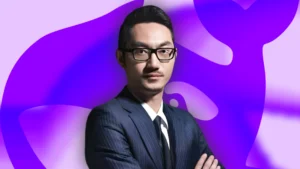
Geoffrey Hinton Biography
Geoffrey Everest Hinton (born December 6, 1947) is a British-Canadian computer scientist and cognitive psychologist renowned for his influential contributions to the field of Artificial Intelligence (AI), particularly in the domain of neural networks and deep learning.
Early Life and Education
Hinton pursued his education at King’s College, Cambridge, graduating in 1970 with a bachelor’s degree in experimental psychology. He furthered his studies at the University of Edinburgh, obtaining a PhD in artificial intelligence in 1978 under the guidance of Christopher Longuet-Higgins.
Career and Research
Hinton’s career traversed various academic institutions, including the University of Sussex, University of California, San Diego, Carnegie Mellon University, and University College London. He currently holds a professorial position at the University of Toronto, where he is a prominent figure in the computer science department.
His groundbreaking research, notably co-authoring a pivotal paper in 1986 on the backpropagation algorithm alongside David Rumelhart and Ronald J. Williams, significantly impacted the understanding and application of neural networks in machine learning. The collaboration resulted in the popularization of multi-layer neural network training methodologies.
Noteworthy among his achievements is the development of AlexNet in 2012, a milestone in computer vision, which he collaborated on with Alex Krizhevsky and Ilya Sutskever for the ImageNet challenge.
Contributions to AI and Deep Learning
Hinton’s contributions extend to diverse areas of neural network research, including machine learning, memory, perception, and symbol processing. He authored and co-authored over 200 peer-reviewed publications, displaying an extensive body of work that has greatly influenced the AI landscape.
Awards and Honors
His exceptional contributions earned Hinton numerous accolades, including the Turing Award in 2018, shared with Yoshua Bengio and Yann LeCun, for their pioneering work in deep learning. He was also elected as a Fellow of the Royal Society in 1998 and has received various honorary doctorates and lifetime achievement awards for his significant impact on AI research.
Shift in Perspectives and Advocacy
In a significant turn of events, Hinton made headlines in May 2023 by publicly resigning from Google, citing concerns about the risks associated with AI technology. His departure granted him the freedom to openly discuss the potential hazards of AI, including the risks of deliberate misuse, existential threats from artificial general intelligence (AGI), and the implications for the job market.
Views on AI Risks and Future Implications
Hinton’s evolving perspective on AI’s societal impact reflects a growing awareness of the ethical implications of advanced AI technologies. He has been vocal about the need for responsible AI development and has highlighted the urgency of addressing potential risks associated with AI advancement. His advocacy underscores the evolving discourse surrounding AI ethics and the imperative for comprehensive strategies to mitigate potential risks.
Personal Life and Legacy
Beyond his professional endeavors, Hinton’s personal life includes familial connections to notable figures in mathematics, logic, and science. His journey in AI has left an indelible mark, not only through his groundbreaking research but also through his advocacy for responsible AI development and ethical considerations in the field.








